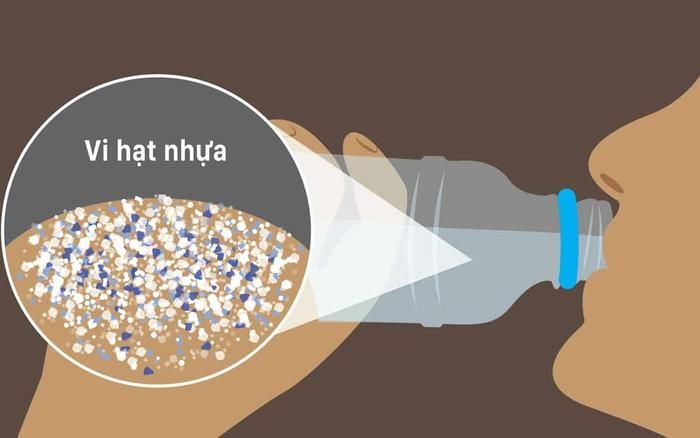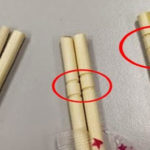
Plastic use can disrupt hormones
A recent study by King’s College, London revealed that microplastics (found in common plastic products) can enter the body and cause stress to the immune system. This, in turn, can affect hormone levels and women’s menstrual cycles.
The main culprit behind the dangers of microplastics is BPA. This compound, commonly used in plastic production, is associated with ovarian cysts, uterine endometriosis, breast cancer, cervical cancer, polycystic ovary syndrome, and more.
A few years ago, a study conducted by the University of Cincinnati (UC, USA) also showed that bisphenol A (BPA), a chemical used to make hard plastics, poses risks to human health and hormone balance. BPA is present in most canned and plastic-packaged products and has been shown to disrupt hormones and negatively affect reproductive capabilities.
Kristi Pullen Fedinick, a scientist from the Natural Resources Defense Council (NRDC, USA), explains that synthetic chemicals found in products such as plastics and fragrances can hinder or disrupt hormone activity. We interact with these chemicals daily, and they can quickly impact the uterus. Even when we are children.
Interestingly, it’s not just plastic users who are at risk. Individuals involved in plastic waste production and handling are also susceptible. This is because tiny and nano-sized plastic particles can enter the human body through digestion, inhalation, and skin absorption.
These particles not only disrupt hormone balance but also contribute to cancer formation and birth defects. Hence, people living near plastic manufacturing or waste-handling facilities have a higher risk of certain cancers, especially leukemia.
Protecting oneself and the environment: Should plastic be entirely abolished?
Dr. Nguyen Duy Thinh, former lecturer at the Institute of Biology and Food Technology, Hanoi University of Science and Technology, explains that debates exist regarding whether to continue or completely eliminate the use of plastic. If we go back in time, we will find that our ancestors stored food in heavy and inconvenient materials like porcelain or glass. These materials were good but expensive and not practical for daily life, unlike plastics.
According to experts, the use of plastic in our daily lives is a technological advancement that offers convenience. However, plastics also pose many risks. The main question is whether using biodegradable materials is the perfect solution for avoiding these risks. This is still a debatable topic.
In Dr. Nguyen Duy Thinh’s opinion, the best approach is to minimize plastic use to protect oneself and the environment. He advises consumers to use plastic intelligently. If an item can be recycled, it should be. Single-use plastics should be disposed of and not reused, as it is challenging to avoid microplastic particles entering the body.
For example, disposable plastic cups used for eating porridge or desserts, or lunchboxes purchased by office workers and students should not be reused. If it’s a plastic bottle used for drinking water a few times, it’s not a problem (though it should eventually be discarded). However, bottles used for storing oil or milk, which typically contain fatty substances, can dissolve plastic particles into water, posing health risks. In such cases, it is best to avoid reusing them.
In daily life, individuals should also maintain healthy habits, such as washing hands frequently to remove significant chemical residues before meals. Keeping the house clean and dust-free is important. If you have a habit of using plastic food containers, try switching to glass or stainless steel. Do not microwave plastic containers. Avoid using canned products, as they are often lined with BPA. Consuming unprocessed foods is always the best choice, as is drinking water from glass containers.
Experts suggest that to ensure safety, consumers should purchase plastic items from reputable brands that have certifications issued by recognized organizations. Look for plastics that are clear, shiny, smooth, and without scratches.
Consumers can check the type of plastic used by looking at the bottom of the product:
Topping the list are plastics labeled PET (Polyethylene Terephthalate), HDPE (High-Density Polyethylene), LDPE (Low-Density Polyethylene), and PP (Polypropylene). Single-use plastics such as water bottles, straws, and coffee cups should not be reused.
Source: PNVN
Exploring the Pros and Cons of Sleeping in an Air-Conditioned Room
Is sleeping with an air conditioner a good idea? As concerns over the adverse effects of air conditioning on our health increase, it’s important to understand the risks and rewards of using air conditioning while sleeping. Let’s examine the benefits and drawbacks of sleeping with an air conditioner, and the protective measures one should take.






































